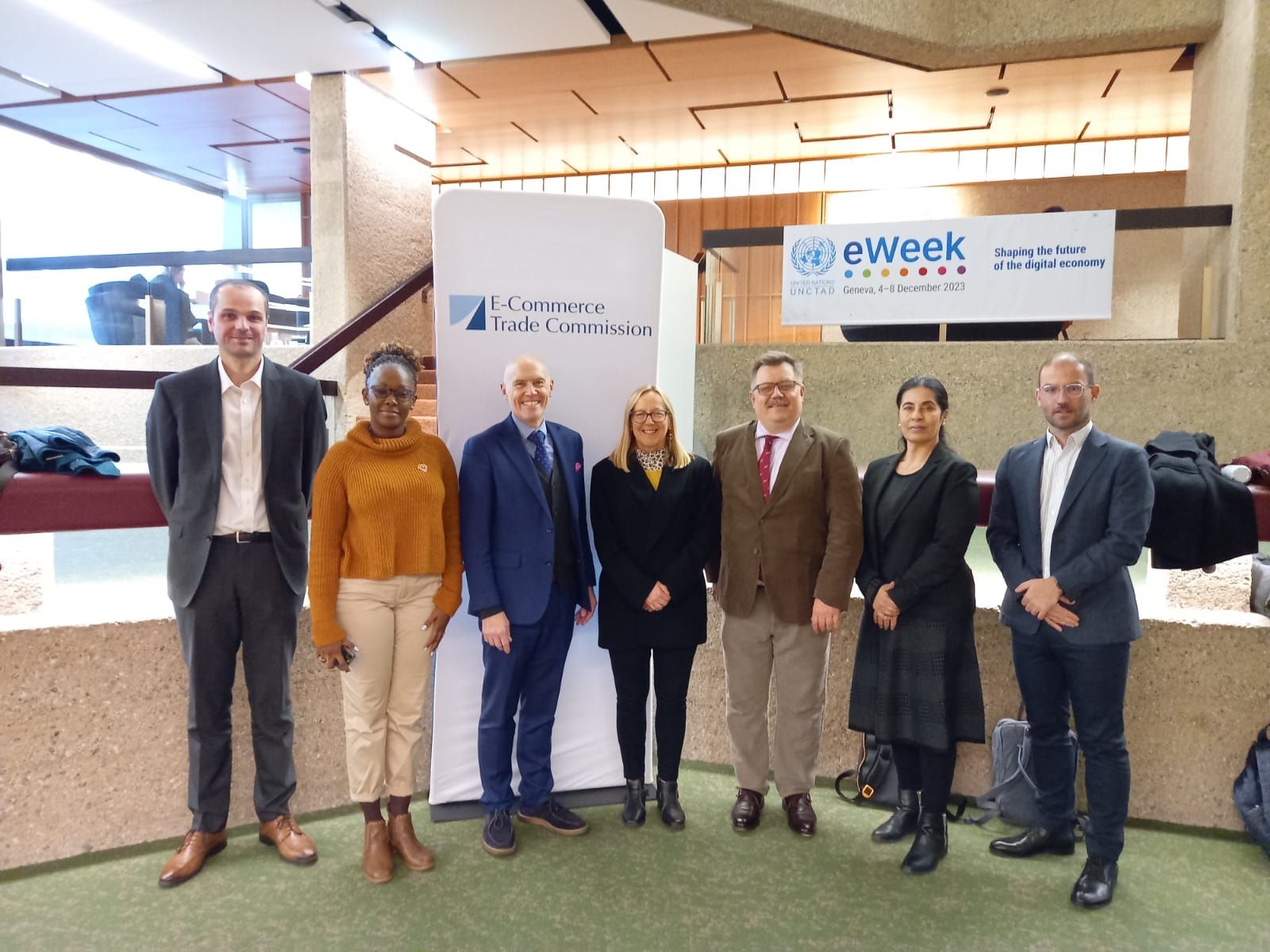
New digital technologies could help smaller companies sell across borders, as well as support female and African entrepreneurs, according to trade experts on an how e-commerce discussion panel.
Held yesterday (7 December) in Geneva, at the UN Conference on Trade and Development’s (UNCTAD) eWeek, the panel - entitled ‘Unlocking potential: Addressing inclusivity barriers in e-commerce trade to deliver sustainable impact in communities everywhere’ – also highlighted the role that public private partnerships (PPPs) have to play in supporting economic growth.
E-Commerce Trade Commission
Delivered by the E-Commerce Trade Commission (ECT-C), the event represents the collaboration from groups with a diverse range of interests, such as private platforms like Shopify, third sector input from the Institute of Export & International Trade (IOE&IT) and public input from Department for Business and Trade (DBT).
Chairing the event, IOE&IT director general Marco Forgione, began the session by outlining the benefits of trade to businesses:
“E-commerce and marketplaces can be deployed to support and encourage particularly MSMEs to trade internationally.
“We know that businesses that sell internationally reap many benefits, including greater sustainability, resilience and profitability.
“Not only that but to address the most significant challenges humanity faces, supporting, encouraging and professionalising cross-border trade is necessary.”
'Lessons crystalised’
Reflecting on the panel, a spokesperson for DBT said:
“The session crystallised so many of the critical discussions held throughout eWeek - especially the call for industry and governments to collaborate in order to address challenges and inequalities.
“Experts shared important and diverse insights into the challenges for under-represented SME businesses in different parts of the world, as well as positive examples and solutions for digital trade policymakers and industry leaders to address together.”
Inclusive trade
IOE&IT Academic Board chair and Aston University professor Sangeeta Khorana emphasised the social purpose behind the ECT-C, outlining the role it had to play in promoting sustainability and ensuring it benefits all stakeholders, including vulnerable groups and women.
Given that women are overrepresented in smaller businesses, the role of e-commerce was seen as particularly important for improving female participation in trade.
Kostas Rossoglou, director of public policy and government affairs at Shopify, noted that 53% of businesses on the platform are run by women and also reported that these firms are 5% more profitable than the average firm on the site.
From a policy perspective, Rossoglou said that technological advances such as artificial intelligence (AI) could be used to support small businesses.
Informality
Forgione’s call for the need to “professionalise” trade was picked up on by panellists in the context of some of the challenges facing African trade. Several speakers highlighted the informal nature of many African economies as a barrier to trade.
Jacqueline Jumah, a specialist in digital services, noted it was common for small business owners to use personal bank accounts for business purposes, depriving them of product features better able to support growth.
Jumah added that registration could be difficult for businesses in rural areas, making access to official finance channels impossible.
Global System Management Association’s (GSMA) Daniele Tricarico highlighted that currently these kinds of informal arrangements contribute to a lack of trust from consumers, damaging businesses’ growth.
However, he added that this mistrust currently extends to many social commerce platforms, citing a GSMA study across six African markets.
He said that this will disproportionately harm micro businesses, as 60% exclusively use social commerce platforms. Mirroring Shopify’s findings, this also included a gender imbalance with 63% of women-led MSMEs relying exclusively on social commerce, compared with only 50% of men.
Digital progress
Despite the need for greater policy harmonisation, Jumah noted that some financial technology was able to operate across borders and facilitate international trade. She singled out Wave, an e-wallet app that facilitates saving and payments.
Jumah
said that mobile money had also facilitated a greater number of digital transactions across many African countries, highlighting the accelerating adoption of mobile money and communication platforms, such as M-Pesa and WhatsApp. She described these
as “driving the digital economy” in Uganda, Tanzania, and Kenya.
Elsewhere these mobile apps were praised for enhancing connectivity with traditional banks, which Dmytro Tupchiienko, director of Thames Radio Optics and IOE&IT member, thought
had become more difficult to access.
The closure of HSBCs branches, in Kolkata for example, and subsequent delays when trying to access help online made it difficult to bank properly.
By contrast, he thought that African nations’
approach of moving this aspect of customer service onto platforms like WhatsApp was an “innovative and inefficient” way to address the problem.



